Political Machinations In North Korea
There was a somewhat surprising development out of North Korea in recent days that may signal that Kim Jung Eun is consolidating power far more quickly than many observers had thought he’d be able to:
SEOUL, South Korea — In the first months of Kim Jong-un’s rule over North Korea, Vice Marshal Ri Yong-ho was one of the officials most often seen with him. They inspected military barracks and reviewed parades together. Photos often showed the young leader leaning in to listen to the general, and laughing. Just a week ago, Vice Marshal Ri was seen standing next to Mr. Kim at an important state ceremony.
But on Monday, the North’s state-run Korean Central News Agency startled Pyongyang watchers with the announcement that Vice Marshal Ri, chief of the general staff of the Korean People’s Army and until now widely seen as one of Mr. Kim’s most trusted mentors, had been removed from all posts because of “illness.” The Politburo of the Central Committee of the Workers’ Party of Korea dismissed him in a rare meeting convened on Sunday.
Since Mr. Kim replaced his father, Kim Jong-il, at the top of North Korea’s opaque hierarchy after the elder Kim’s death in December, analysts have scanned nearly every scrap of information coming out of the country for clues to the new leader’s intentions. With Monday’s development, some analysts say, one thing at least is clear: Mr. Kim is wielding his family’s favorite tool of control — using and discarding the senior officials around him like pawns on a chess board.
The inner workings of political power in North Korea are shrouded in mystery, with top officials often demoted, made to disappear, reinstated or killed in suspicious “traffic accidents” in North Korea, where few cars run. Ensuring such unpredictability in any general’s career was seen as a crucial method used by Kim Jong-il, and his father Kim Il-sung before him, to tame generals and party secretaries.
“These guys live the life of a fly,” said Lee Byong-chul, an analyst at the Institute for Peace and Cooperation in Seoul. “This signals that Kim Jong-un’s consolidation of power is proceeding faster than expected.”
The circumstances of Vice Marshal Ri’s fall may look highly unusual. Few analysts had suspected him of health problems. Rather, the 69-year-old vice marshal looked vigorous, compared with the other aging officials surrounding Mr. Kim. Besides, octogenarian party secretaries and generals with serious illness were often allowed to keep their jobs until they died.
But the Kim dynasty has a long history of seemingly wanton political persecution.
In late 2009, when its attempt to crack down on black market activities and arrest inflation by radically devaluing its currency backfired, aggravating a food crisis and triggering highly unusual outbursts of protest in the totalitarian state, the regime executed its top party financial official. The official, Pak Nam-gi, faced trumped-up charges of anti-revolutionary activities, according to intelligence officials in Seoul.
North Korea also cited “health issues” when it fired a police chief and a vice prime minister last year. It cited a traffic accident when it announced the 2010 death of Ri Je-gang, a key party official said to be a rival of Jang Song-thaek, the uncle of Mr. Kim and another influential power broker.
Vice Marshal Ri’s dismissal came as Mr. Kim has begun projecting himself as a leader self-confident enough to attempt significant departures from his father’s ruling style. Earlier this month, he was shown on state television clapping hands at such icons of American pop culture as Mickey Mouse and Rocky Balboa. He also appeared with a young woman widely believed to be his wife, which would mark the first time in many years for most ordinary North Koreans to see their first lady on television.
Outside analysts and officials have closely watched how Mr. Kim would control of the People’s Army, a loyal guardian of his family’s dynastic power whose role grew even bigger under his father’s “military-first” policy. Until now, Vice Marshal Ri had been seen as a central figure in helping him consolidate his grip on the military.
It’s possible, of course, that Ri actually is suffering from some sort of illness, but that seems rather unlikely under the circumstances and, as others have noted, it’s usually been the case that the top members of North Korea’s leadership hang out to power even through illness. So, the best guess is that Ri was pushed aside for some reason. What that reason might be, of course, is anyone’s guess. It could be that the young Kim decided that he no longer needed to keep Ri at his side as part of what some called at the time of Kim Jong Il’s death “rule by committee.” It could be that there is a power struggle going on between the military and the civilian —- meaning the Kim family and its hangers-on — powers that be. As with everything else North Korean, it is a puzzle that we will only really know the answer to by watching events unfold over the coming months.
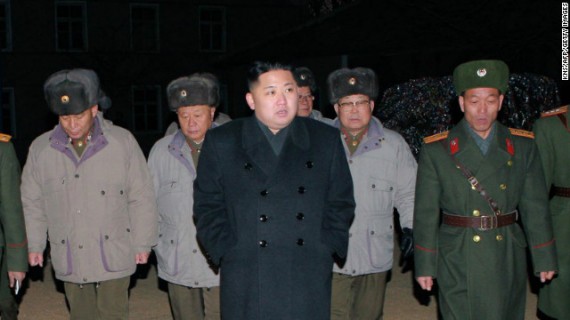

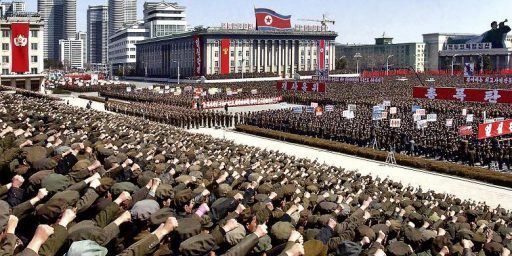
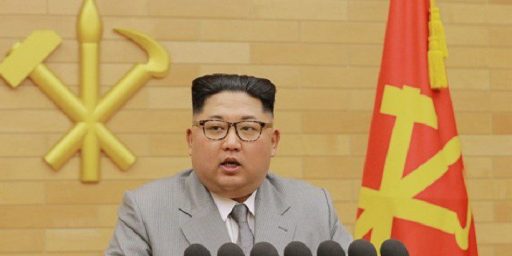

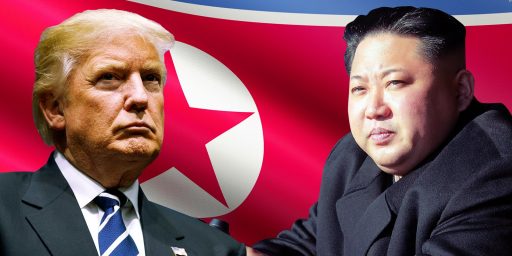
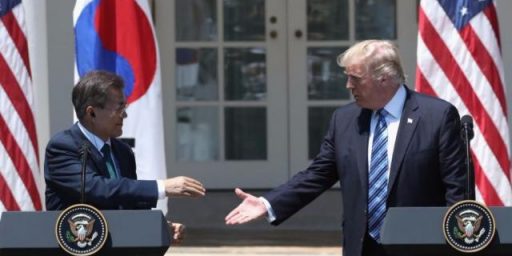
No Koreaphiles here preaching that due to Jong-un’s actions we better get over there and “take him out” before he becomes too strong for us to take (and/or gets nuclear weapons)?
Somehow, from my desk in Daejeon, I feel greatly… well, relieved.